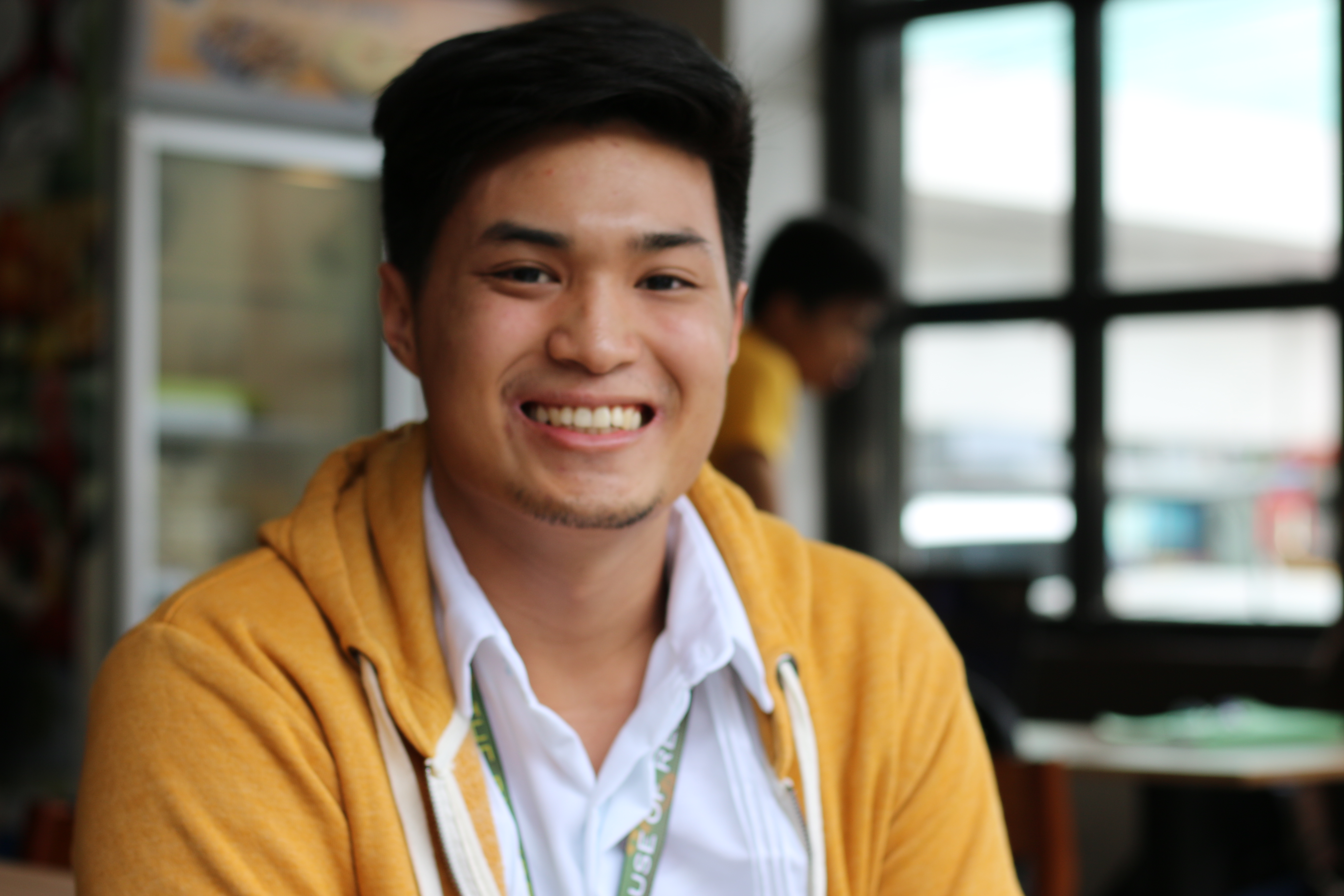
JOHN NEPOMUCENO sits with his hands clasped, eyes fixated on the table. He is struggling to follow his train of thought. His heartened discussion on special needs individuals was disrupted by the stream of cars rushing through Dapitan just across his seat in the café. “Na-distract ako sa mga kotse,” he chuckles. “That’s why I don’t study here anymore.”
Growing up, John noticed that he was different from most kids: he was always a little too energetic, a little too playful, a little too easily distracted. His mother noticed it, too, but it was only upon her friends’ encouragement that she finally decided to get her son checked.
At the age of five, John was diagnosed with Attention Deficit Hyperactivity Disorder (ADHD). Today, at 21 years old, John advocates for and empowers people with special needs by delivering inspiring speeches at conferences.
Speaking up for the silent
As a child, John did not think much of his diagnosis. Luckily, his mother, a special needs educator for over 20 years now, knew exactly what to do. She taught her son about the different kinds of disabilities and took him to various ADHD conferences and seminars where his passion for special needs advocacy eventually blossomed.
“[My mom] slowly got me into talking [and being open] about my ADHD. She started first with having me as a prayer leader every time for the seminars, then it slowly moved to talking to people about […] my ADHD,” he narrates.
The History senior has spoken in various conferences hosted by universities, the Occupational Therapy Association of the Philippines, and the ADHD Society of the Philippines. In every speech he delivers, his message to people with special needs is always the same: don’t look down on yourselves and rise above your disabilities.
“People with disabilities […] have such low self-esteem; they have such a low perspective of themselves […] So what I want to do is really reach out to them and say ‘Disability, despite that being there, could actually help you [to become] what you want,’” he says.
Taking control
John’s caffeinated drink remains untouched at his side—he is too preoccupied to give it any attention. Yet, even while he is animatedly absorbed in conversation, he still chooses his words carefully and maintains his composure.
It was a composure that he had to learn to develop slowly. In grade school, John lost 16 lunch boxes because he was easily forgetful, struggled with his academics due to his short attention span and experienced bouts of impulsiveness and hyperactivity.
He describes living with ADHD as having a mind that constantly thinks of everything at the same time. Fortunately, through the collaborative effort of his family, therapists, and tutors, John slowly learned how to take control over his condition instead of allowing it to control him. He shares that a technique called hyperfocusing is his key to dealing with ADHD.
“I had to cope with [ADHD] by […] hyperfocusing, [which] is when we get into a specific task or assignment, we don’t stop until maybe it’s perfect, or maybe we’re satisfied with what it is.”
The technique is most useful to John when it comes to athletics. Whenever he is hooked on a particular sport, he studies it intently until he knows every position of the players, the different dynamics of the game and the necessary movements of the body.
“You could say I poured more than 120 percent into the [sports] I got really engrossed in. […] One could somehow call it an obsession, but I’d like to think of it as hyperfocusing.”
John considers his ADHD as a blessing because it pushed him to improve his life. He uses his short attention span to his advantage by multitasking, channels his hyperactivity into different sports and excels in his academics through hyperfocusing.
“There is always a way around [a disability], and there is always a way to work with what you have. If you have that disability, I’m sure [that] either way, you can succeed despite all the hardships,” he encourages.
Beneath the exterior
While walking on the way back to the St. Raymund’s Building after the interview, John encounters a handful of friends, each one he greets with a pat on the back and engages in short conversation. This is how he wishes special needs individuals would be perceived by others—as friendly people who will always welcome you with a smile and a story.
“[To] people without disabilities: believe me, these people with disabilities are very loving and very sweet and very fun to be with. [I]f you befriend them, they’ll be able to help you in any way that they can,” he says.
John hopes for a greater awareness of special needs issues in the Faculty of Arts and Letters. He believes that more attention should be given to students who have autism and other similar disabilities in order to facilitate better learning.
Lighting the way
John is grateful for the opportunity to champion the cause of the disabled. He recently received the Student Honorary Award from the international group Special Education Network in Asia for his dedication to the special needs advocacy.
He plans to continue doing more talks and sharing his experiences with ADHD to inspire more people to change their views on mental and physical disabilities.
“I believe that the small things—small speeches, small talks, small words—can help [special needs individuals] in the long run,” John says. F



